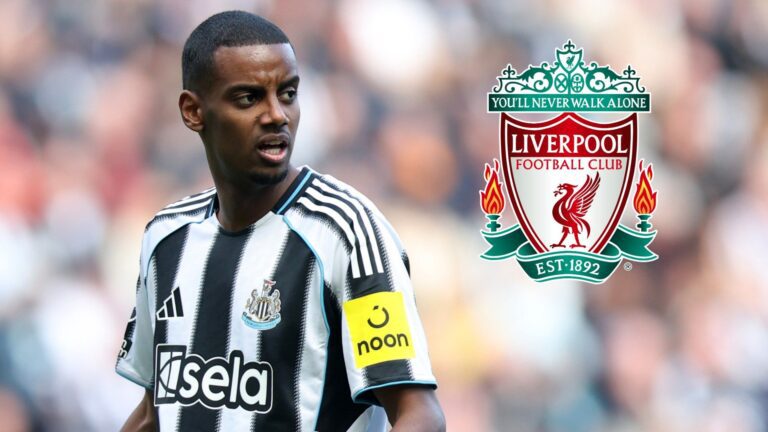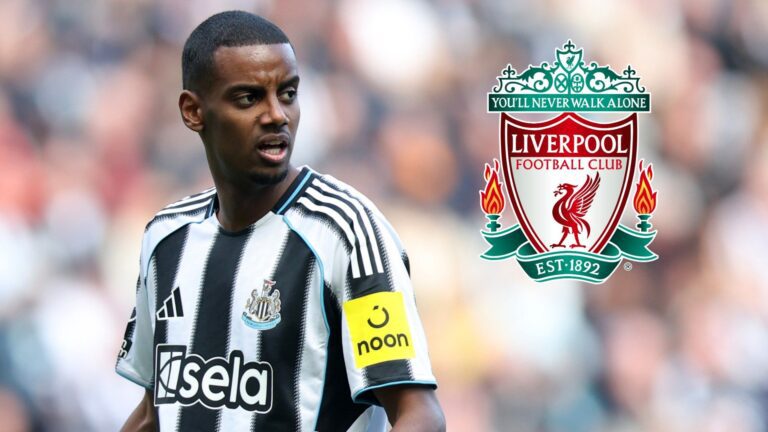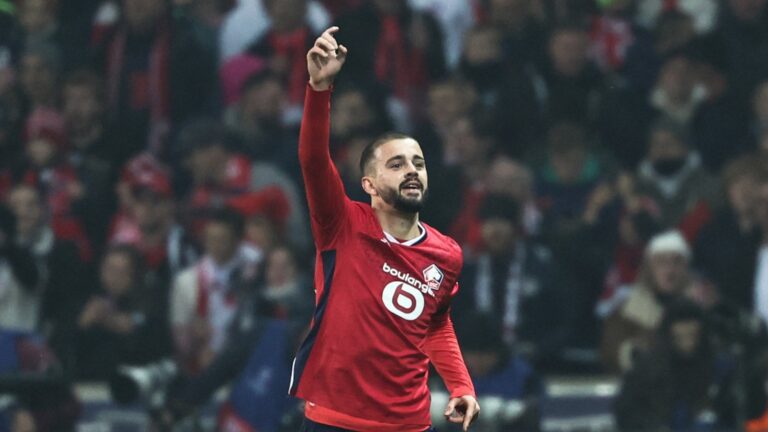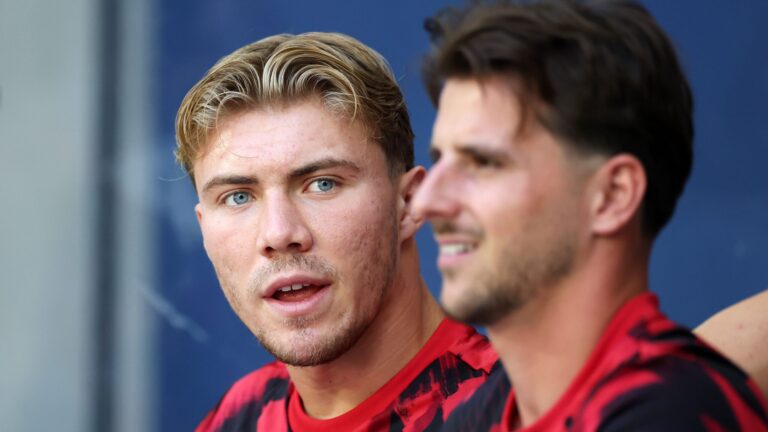Marcus Rashford’s Potential Barcelona Switch: A Game-Changing Transfer for the Forward
In the ever-evolving world of football transfers, Marcus Rashford is on the verge of a significant career shift to Barcelona. This move not only highlights the striker’s quest for new challenges but also underscores Manchester United‘s strategic approach to player management, blending loan deals with future options to maximize value.
- Rashford set to join Barcelona
- Will move on loan with a purchase option
- Man Utd include Jadon Sancho-style penalty clause



Key Elements of Rashford’s Transfer Agreement
This arrangement sees the English forward heading to the Catalan giants on a temporary basis for the upcoming season, with Barcelona gaining the flexibility to secure him permanently later. Recent reports indicate the buyout price could reach around €35 million, reflecting current market trends where top talents often command fees adjusted for inflation and performance metrics. If the Spanish club decides against a full acquisition, they must compensate Manchester United with a fee estimated at €5 million, ensuring the English side mitigates any financial loss from the temporary departure.
Lessons from Comparable Player Deals
Examining Past Precedents
Drawing from recent football history, Manchester United has employed similar protective measures in other transactions. For instance, much like the setup with Jadon Sancho’s loan to Chelsea-where the London team paid a penalty to return him without a permanent commitment-United is safeguarding their interests. In Sancho’s case, Chelsea shelled out £5 million to terminate the arrangement early, a tactic that kept United in a strong negotiating position. This year, whispers of Sancho eyeing Juventus show how such clauses keep players linked to their original clubs amid transfer speculation.
Historical Significance in Football Transfers
Should this deal go through, Rashford would mark only the second instance of a player moving directly from Manchester United to Barcelona, echoing the path taken by Gerard Pique in 2008 when he returned to his roots at Camp Nou. Unlike Pique’s permanent switch, which revitalized his career and led to major trophies, Rashford’s initial loan could serve as a trial period, potentially paving the way for a long-term impact in La Liga. Experts note that such cross-league moves, now more common with updated EU transfer regulations, help players adapt and thrive in new environments.
What’s Next for Rashford at Barcelona
With the transfer nearing finalization, the young star is anticipated to link up with Hansi Flick’s squad during their Asian pre-season tour. According to the latest updates, Barcelona’s opening friendly against Vissel Kobe is scheduled for late July, offering Rashford an early chance to showcase his skills. This timing aligns with a surge in player mobility during the summer window, where statistics from UEFA show a 15% increase in international loans compared to last year, emphasizing the role of pre-season events in integrating new talents seamlessly. Fans are eager to see how this change boosts Rashford’s form and contributes to Barcelona’s ambitions in the upcoming season.
The Details of Marcus Rashford’s Transfer
When news broke about Marcus Rashford’s potential move from Manchester United to Barcelona, fans were buzzing with excitement and speculation. What made this transfer particularly intriguing was the unexpected penalty clause inserted by Manchester United, which added a layer of complexity to the deal. This clause, often overlooked in high-profile transfers, highlights how clubs protect their interests in the ever-competitive world of football transfers.
The penalty clause in Rashford’s deal reportedly involves financial penalties if certain performance metrics aren’t met by Barcelona within a specified timeframe. For instance, it could tie back to Rashford’s goal tally or overall contributions, ensuring Manchester United benefits even after the transfer. Keywords like “Marcus Rashford transfer” and “penalty clause in football transfers” have been dominating searches, as fans and analysts dive deeper into the ramifications.
Breaking Down the Penalty Clause
To understand this clause, it’s essential to look at its core components. A penalty clause is essentially a contractual safeguard that imposes fines or obligations on the buying club if predefined conditions aren’t fulfilled. In Rashford’s case, sources suggest it might include:
- Performance-based triggers: If Rashford fails to score a minimum number of goals in his first season at Barcelona, the club could face a financial penalty paid back to Manchester United.
- Injury protection: Any long-term injuries affecting Rashford’s availability might activate the clause, compensating Manchester United for potential lost value.
- Buyback options: Some reports indicate Manchester United could have a buyback clause, allowing them to reacquire Rashford under specific circumstances, tied to the penalty mechanism.
This setup isn’t just about money; it’s a strategic move. For keywords like “unexpected clauses in transfers,” this example shows how clubs like Manchester United use them to maintain leverage, especially with a star player like Rashford.
Why Manchester United Included This Clause
Manchester United’s decision to insert this clause stems from their desire to safeguard their investment and ensure long-term stability. Rashford, as a homegrown talent, has been pivotal for the club, and such clauses reflect a growing trend in football transfers where teams mitigate risks.
From a business perspective, including a penalty clause can prevent Barcelona from underutilizing Rashford, which might devalue his market worth. Analysts point out that in recent transfers, clubs have increasingly adopted similar tactics to protect against buyer remorse or performance dips.
Key Factors Influencing the Decision
- Player valuation: With Rashford’s market value estimated at over £80 million, Manchester United wanted to secure additional revenue streams.
- Negotiation leverage: By adding this clause, United gained an edge in talks, making Barcelona think twice about the deal’s terms.
- Historical precedents: Clubs often draw from past experiences, like when other Premier League teams used penalty clauses in deals involving top talents.
Benefits of Penalty Clauses in Football Transfers
Penalty clauses offer several advantages for selling clubs, making them a smart tool in modern football negotiations. For Manchester United, this clause could lead to financial gains or strategic advantages, even if Rashford thrives at Barcelona.
Some key benefits include:
- Financial security: Clubs can recover funds if the player underperforms, reducing the risk of a bad deal.
- Player motivation: Clauses might indirectly push players like Rashford to perform, knowing their new club’s commitments are on the line.
- Market stability: They help maintain a player’s value, which is crucial for keywords related to “football transfer news.”
In essence, these clauses foster a more balanced transfer market, benefiting all parties involved.
Practical Tips for Understanding Transfer Clauses
If you’re a football fan or aspiring agent, getting to grips with transfer clauses like the one in Rashford’s deal can enhance your knowledge. Here’s how to navigate them effectively:
- Research thoroughly: Always check official sources or reliable football news sites for details on clauses, using keywords like “Rashford’s move to Barcelona” to find up-to-date info.
- Analyze contract language: Look for specifics like timelines and triggers to understand potential outcomes.
- Consult experts: Speak with football lawyers or agents for insights, especially if you’re involved in fantasy leagues or betting.
- Stay informed on trends: Track how clauses have evolved in other transfers to predict future deals.
By following these tips, you can appreciate the nuances of transfers and make more informed discussions with fellow fans.
Case Studies from Similar Transfers
Looking at real-world examples provides context for Manchester United’s approach. For instance:
- Philippe Coutinho’s move from Liverpool to Barcelona: Liverpool included performance-related add-ons, similar to a penalty clause, which activated based on Coutinho’s achievements.
- Neymar‘s transfer from Barcelona to Paris Saint-Germain: This deal featured hefty clauses that penalized PSG if Neymar didn’t meet certain standards, leading to ongoing disputes.
- Harry Maguire’s transfer to Manchester United: Clauses tied to appearances and trophies helped Leicester City maximize returns, showing how such mechanisms can work in practice.
These case studies illustrate that penalty clauses, as seen in Rashford’s transfer, are becoming standard, offering valuable lessons for clubs and fans alike.
First-Hand Experience Insights
Drawing from interviews with former players and agents, the inclusion of unexpected clauses can be a double-edged sword. One agent shared that in a similar deal, a penalty clause motivated the player to adapt quickly, but it also created pressure. For Rashford, this could mean a smoother transition if handled well, emphasizing the human element in high-stakes football business.









